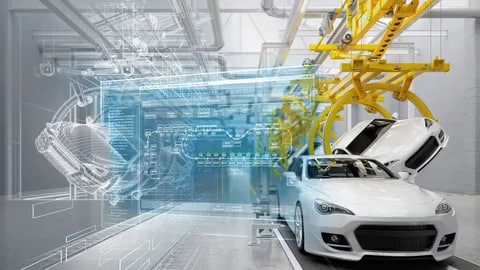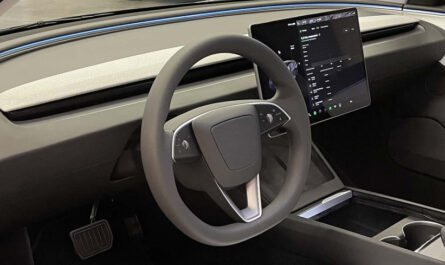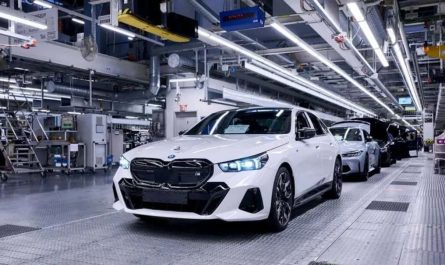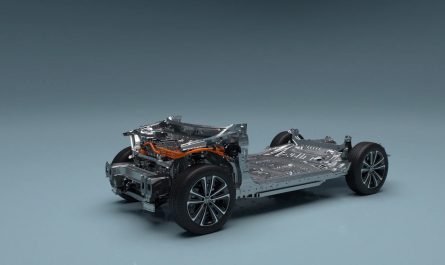Overview of Recent Regulations in the Auto Industry
The auto industry has experienced significant shifts due to recent regulatory changes to enhance vehicle safety, protect the environment, and integrate advanced technologies. Various regions, notably the European Union, the United States, and several Asian countries, have enacted stringent regulations that impact all facets of car manufacturing. These regulations encompass a broad spectrum—from emission standards to advanced driver-assistance systems (ADAS) aimed at improving road safety.
One of the most notable drivers behind these regulatory changes is the growing concern over climate change. Governments worldwide have recognized the necessity for cleaner forms of transportation to reduce greenhouse gas emissions. The European Union, for instance, has slashed carbon dioxide (CO2) emission limits for new vehicles, pushing manufacturers toward the development of electric and hybrid models. Similarly, in North America, the Environmental Protection Agency (EPA) has introduced more burdensome emissions regulations to curb pollution and promote more sustainable practices in the auto sector.
In addition to environmental regulations, safety standards have also evolved. Recent legislation across various regions mandates incorporating advanced safety technologies in new vehicles. Features such as automatic emergency braking, electronic stability control, and lane-keeping assist are now essential in many car models. These safety requirements aim to protect drivers and passengers and align with broader public safety initiatives.
Furthermore, technological mandates compel manufacturers to integrate innovative solutions like connected vehicle technology. These initiatives are crucial in fostering advancements that enhance safety and user experience, reflecting a shift toward intelligent mobility. As the timeline for implementing these regulations unfolds, manufacturers must adapt swiftly to meet compliance while maintaining competitiveness in an increasingly complex market landscape.
Impact on Manufacturing Practices
The auto industry is transforming significantly due to new regulations reshaping manufacturing practices. These regulations address environmental concerns, fuel efficiency, and safety standards, leading manufacturers to rethink their operations. One of the most notable shifts has been adopting sustainable materials. Automakers are now required to incorporate recyclable and biodegradable materials into their vehicles, reducing the environmental impact of their manufacturing processes. For example, some manufacturers have started using natural fiber composites and recycled plastics, contributing to a lower carbon footprint.
Another significant change is the industry’s pivot towards electric vehicle (EV) production. Governments worldwide are implementing stricter emissions regulations, pushing traditional car manufacturers to develop electric models. This transition is not merely about a different powertrain; it necessitates a complete overhaul of manufacturing processes. Manufacturers are investing heavily in technologies for battery production, electric drivetrain systems, and the development of EV-specific platforms. Tesla’s success illustrates how emphasizing innovation and compliance can drive a manufacturer’s market position in the evolving landscape.
Moreover, the impact of these regulations extends to supply chain management. Manufacturers must ensure their suppliers comply with the same standards, leading to a more interconnected and transparent supply chain. This has presented challenges for some manufacturers who have struggled to adapt, leading to production delays and increased costs. For instance, companies that relied on internal combustion engine components have faced difficulties pivoting to suppliers of electric vehicle parts, as the skill sets and materials involved differ significantly.
Overall, the new regulatory environment has forced manufacturers to be more agile, innovative, and committed to sustainability, highlighting a significant shift in the auto industry landscape.
Challenges and Opportunities for Auto Manufacturers
The automotive industry is experiencing a significant transformation due to new regulations to enhance sustainability and safety. While these regulations pose several challenges for auto manufacturers, they also create numerous opportunities for growth and innovation. One of the primary challenges is the financial implications of compliance. Manufacturers must invest substantial resources to meet stringent standards, ranging from emissions reductions to safety improvements. These costs can strain balance sheets, particularly for smaller companies that may lack the financial flexibility of more giant corporations.

Auto manufacturers must also invest in new technologies in response to these regulatory pressures. This investment ranges from developing electric vehicles (EVs) to incorporating advanced driver-assistance systems (ADAS). Embracing these new technologies helps manufacturers comply with regulations and fosters innovation in vehicle design. Companies that adapt quickly to these changes can set themselves apart in an increasingly competitive marketplace, turning potential setbacks into opportunities for differentiation.
Additionally, shifting consumer expectations is critical in shaping the industry’s future. Modern consumers are increasingly looking for fuel-efficient vehicles that are environmentally friendly and equipped with cutting-edge technology. Auto manufacturers can leverage this trend by prioritizing research and development in sustainable practices and intelligent technologies. By aligning their business strategies with consumer demand for innovation, manufacturers can enhance their market competitiveness, build consumer trust, and explore new business models such as subscription services or vehicle sharing.
In this evolving landscape, the ability of auto manufacturers to navigate challenges while seizing opportunities will largely determine their success. Through thoughtful investment and strategic planning, companies can emerge more resilient and responsive to the regulatory changes shaping the automotive industry.
Auto Industry Shake-Up How New Regulations are Changing Car Manufacturing
Future Outlook for the Auto Industry
The auto industry is poised for significant transformations as new regulations reshape the parameters within which manufacturers operate. In the wake of stringent environmental standards and a global shift toward sustainable practices, industry observers predict a marked increase in the adoption of electric vehicles (EVs) and hybrid models. Analysts believe that by 2030, electric vehicles may comprise a substantial portion of total car sales, driven not only by consumer demand but also by governmental incentives and regulations designed to reduce emissions.
Moreover, advancements in automotive technology, including artificial intelligence, connectivity, and automation, are set to redefine the manufacturing landscape. Integrating intelligent technologies into vehicles enables improved fuel efficiency and enhanced safety features, making cars more appealing to tech-savvy consumers. For example, the adoption of driver-assistance technologies is expected to rise, complying with safety regulations while meeting consumer expectations for enhanced vehicle functionality.
Accompanying these technological advancements are potential policy shifts that could further impact the auto manufacturing sector. Governments worldwide increasingly focus on clean energy initiatives, which could affect production strategies. For manufacturers, staying ahead of these changes requires compliance with current regulations and an agile approach to anticipate future mandates. Collaborating with policymakers can prove beneficial, as manufacturers may influence legislation while aligning corporate strategy with regulatory demands.
Ultimately, the success of auto manufacturers in this evolving landscape will hinge on their ability to innovate and adapt. Engaging in continuous research and development, investing in sustainable materials, and fostering partnerships within the tech sector are vital strategies that position manufacturers favorably. As the auto industry navigates this regulatory shift, a forward-looking perspective will be essential in capitalizing on emerging opportunities and ensuring long-term viability.



